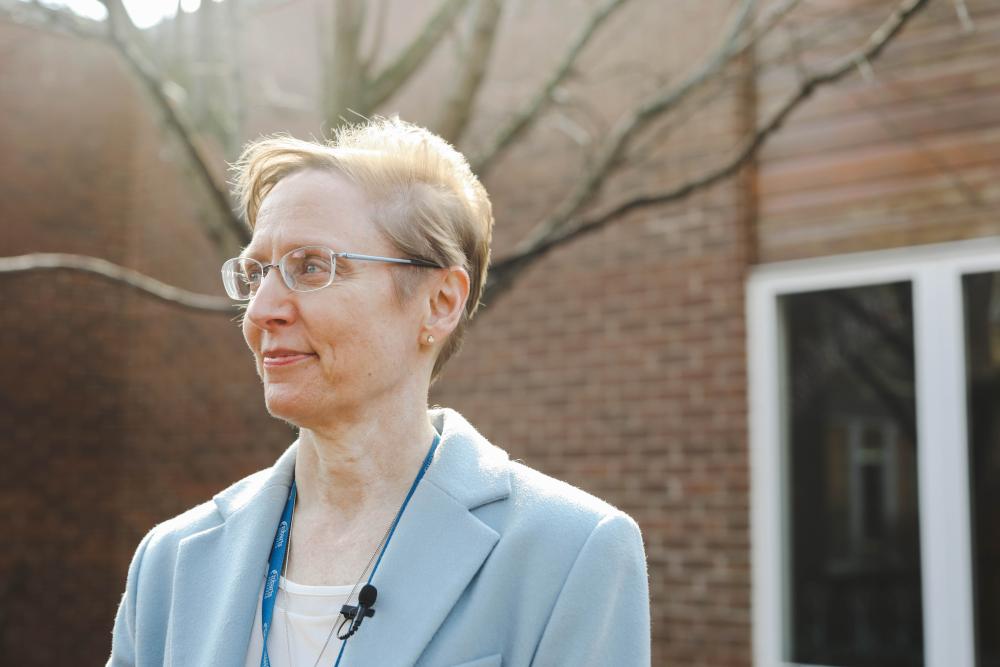
According to Dr. Elizabeth Osuch, founder and physician lead at London Health Sciences Centre’s (LHSC) First Episode Mood and Anxiety Program (FEMAP), COVID-19 has been devastating to youth. A first of its kind in Canada, FEMAP has been providing enhanced mental health services to London’s youth between the ages of 16 and 25 for more than a decade. But as demand for FEMAP’s services grew and grew, so did the need to accommodate it. And during the pandemic, that already high demand for help increased by more than 100 per cent.
Thankfully, plans for expansion were already in progress, an undertaking completely funded by donors. And with 2021 being yet another year in and out of lockdown, the team was laser-focused on having the new facility at 54 Riverview Ave. ready for in-person treatment as soon and as safely as possible.
“First and foremost, we are now able to double the capacity of the number of patients we see,” Dr. Osuch says.
In the past, group sessions often had to be booked offsite due to lack of space. This change in routine, of being required to walk from one facility to another, had the potential to disrupt some people’s sense of security. Therefore, as a program dedicated to providing a youth-friendly environment, it was important to be able to hold group sessions in-house.
“For young people who may have experienced trauma earlier on in life, consistency is essential in the therapeutic relationship,” Dr. Osuch states.
But apart from increased patient volume, to continue FEMAP’s vision of innovating youth mental health care, the next generation of specialists also needed room to learn and grow.
“We have the ability to bring more trainees on-board than we could before,” Dr. Osuch continues. “We can accept more residents and interns from a wider range of disciplines such as psychiatry, psychology and social work, which is very exciting.”
Larger, dedicated group space on the main level, and trainee/research offices above—integration is at the heart of the new facility’s design. One such example is the installation of a one-way mirror in one of the therapy areas. Reflective on one side and transparent on the other, this seemingly basic addition broadens FEMAP’s training capabilities by providing the opportunity to observe therapy sessions led by trained and trusted experts.
“We’re always looking for the right ingredients for how we can do things better,” Dr. Osuch says.
With 54 Riverview now open and welcoming patients through its doors, youth are back receiving the support they need. And taking the idea of expansion even further, Dr. Osuch and the team at FEMAP are exploring the digital space as a way to help integrate youth mental health care into everyday life. By offering accessible, approachable mental health care, FEMAP is trying to establish a method of maintaining regular contact with its patients beyond the walls of its facilities.
If the pandemic revealed anything, it was our inherent need for connection. Our families, our support systems were suddenly thrust apart due to an invisible threat. For London’s vulnerable youth population, the feeling of being cut-off and the anxiety felt en masse was crippling. However, as FEMAP continues along the leading edge of discovery, improving upon its own processes every step of the way to meet its patients where they are, as Dr. Osuch puts it:
“How do you not do something like this?”
